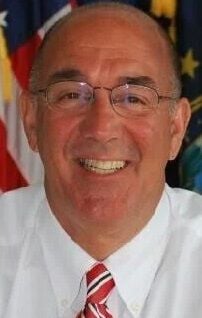RECENTLY, the House Finance Committee voted to zero out the budget of the New Hampshire Commission on Aging. As a former commissioner of the Department of Health and Human Services, and the director of senior services for Easterseals NH, we understand the need to make difficult choices in crafting our state’s budget. Yet our combined years of experience in both the private sector and in government leads us to suggest that repealing the Commission on Aging with its minimal budget is short-sighted in the face of the challenges and opportunities our state faces given our growing numbers of older adults.
According to the U.S. Census, New Hampshire is the second-oldest state in the country; nearly 20% of our residents are 65 or older.

By 2030, older adults will outnumber children in the state, with nearly a third (27%) of the population aged 65 or over. By 2050, approximately 12% of the population will be 80 years or older. New Hampshire must adapt to this demographic reality.
Outdated policies, systems, and infrastructure — particularly in housing, transportation, workforce, and services that help people to age in their homes and communities — require immediate attention. Adapting will allow the state to capitalize on the strengths of its experienced and resourceful older population, benefiting our economy and communities. The Commission on Aging was created in 2019 as a non-partisan, transparent entity whose core mission is to develop solutions.
The commission has emerged as a key facilitator and liaison between advocates and the legislature. By convening stakeholders and fostering collaboration, the commission works to build consensus on sound policy proposals before they reach the Legislature. The commission is a unique group, including leaders from eight state agencies and governor-appointed representatives from every county, which truly breaks down silos and brings a well-rounded perspective to aging issues.
The efforts of these volunteers amplify the impact of an otherwise tiny agency with just two full-time equivalent employees. Here are examples of the commission’s efforts: • Working across state agencies — including the departments of Transportation, Health and Human Service, Military Affairs and Veteran Services, and the Governor’s Commission on Disability — to assess unmet human transit needs and develop strategies to make better use of transportation funding coming from a surprisingly large number of sources. • Supporting improved options for aging in the community, which is desired by individuals and is less costly for the state than institutional care.
• Last year we forged consensus on the creation of the role of certified assisted living medication assistant to address workforce shortages within assisted living facilities, while attending to quality-of-care concerns of residents. An aging New Hampshire should be seen as more than a problem and a set of costs; it is an opportunity. Older adults today are living longer, healthier lives and are more productive than ever before.
Older adults are an asset to the state in the unpaid caregiving they provide; their energy and wisdom propel many volunteer efforts. And with responsive and thoughtful workplace policies, many will continue participating in the workforce. The Legislature should retain funding for the volunteer-driven and extremely experienced Commission on Aging, a group that is laser-focused on making better use of the resources we have and preparing for a demographic future that is nearing and inevitable.
As a short-term measure, cutting this tiny budget sacrifices our ability to shape that future..
Politics

Laurie Duff & Nick Toumpas: Does NH need a Commission on Aging?

RECENTLY, the House Finance Committee voted to zero out the budget of the New Hampshire Commission on Aging. As a former commissioner of the Department of Health and Human Services, and the director of senior services for Easterseals NH, we...















